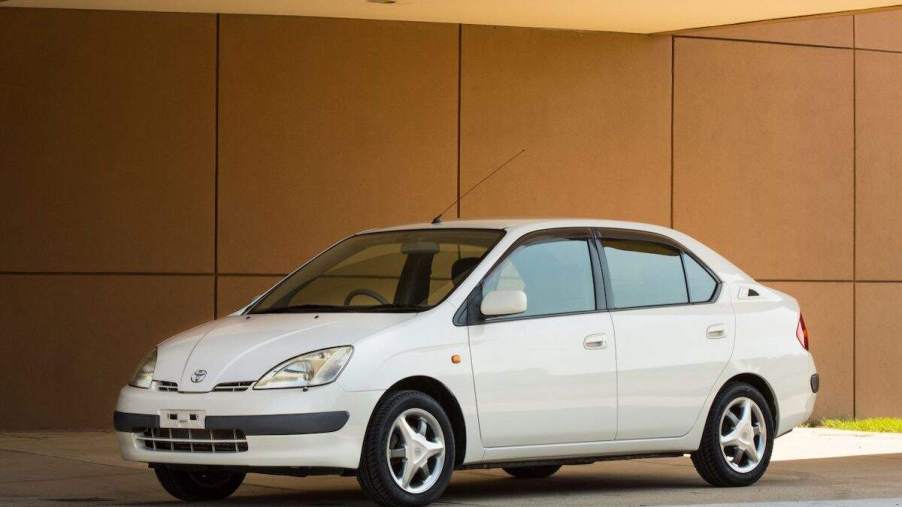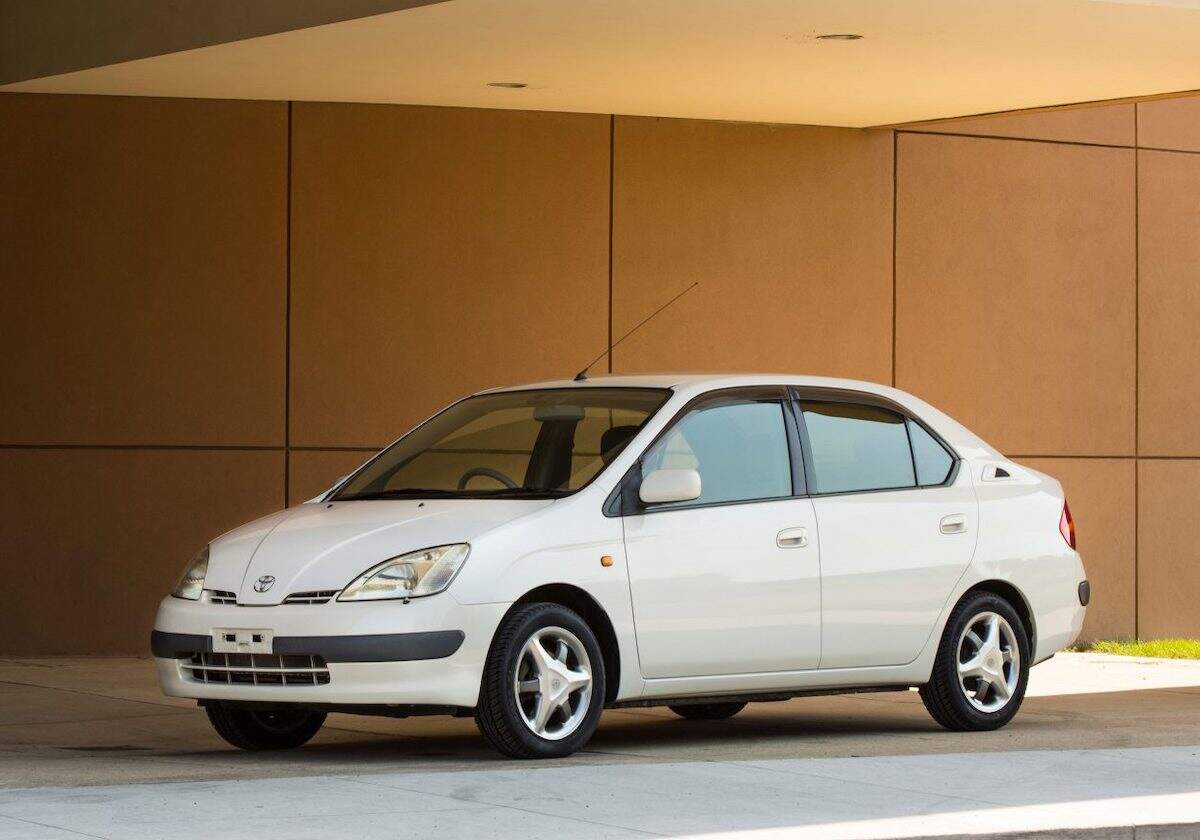
What Was the First Mass-Produced Hybrid Car?
Electric and hybrid vehicles are becoming widely accepted, with many major automakers producing more electric models each year. EVs’ origins can be traced to the early 19th century, when inventors and innovators began devising ways to power transportation vehicles. Among those early EVs was the first mass-produced electric car, which paved the way for today’s EVs and hybrids. In that context, let’s explore the history of EVs and the story of the first mass-produced hybrid car, the Toyota Prius.
A brief history of electric and hybrid cars
The origin of electric vehicles dates back to early in the 19th century. There aren’t many written records to tell us who invented what and when. But the history of EVs is fascinating nonetheless.
Some of the earliest cars ran on electricity and were popular in the late 19th and early 20th centuries. The first EV was built in the 1830s, and by the 1890s, electric vehicles were quite popular. Clean, quiet, and easy to operate, they were especially favored by women who didn’t have the physical strength to crank the engines of the era’s gas-powered cars.
In 1901, the first hybrid car was created by Ferdinand Porsche, who later founded the Porsche car company. He fitted his hybrid with an electric motor and a gasoline engine. The electric motor was used for low-speed driving. For higher speeds, the car relied on the gas engine, the U.S. Department of Energy explains. It was impressive at the time because it proved hybrid technology was a workable option for transportation vehicles.
But in the early 20th century, electric and hybrid vehicles faced many challenges. Batteries were expensive, and their driving range was limited. Gas-powered cars were more affordable and widely available, causing the decline of electric vehicles.
The first mass-produced hybrid car is not a surprise

Toyota introduced the first mass-produced hybrid car — the Prius — in 1997. The automaker designed the vehicle to be more fuel efficient and environmentally friendly than standard internal combustion engine cars.
The Prius had a hybrid powertrain with a gas engine and an electric motor. Its battery pack recharged through regenerative braking, converting the car’s kinetic energy to electrical current and storing it in the battery pack. With the electric motor helping the gas engine when accelerating, the hybrid powertrain significantly improved the vehicle’s fuel efficiency.
The first-generation Prius packed a 1.5-liter gas engine and a 33-kW electric motor. It touted a combined fuel economy of 47 mpg. The car also had a continuously variable transmission (CVT) that enhanced fuel efficiency and offered smooth acceleration.
The Prius quickly gained popularity in Japan for its excellent gas mileage and low emissions. Toyota launched its hybrid car in the U.S. market in 2000. However, it wasn’t as big a hit in the States early on because American consumers wanted larger cars with more power. But eventually, drivers embraced the Prius because of high gas prices and environmental concerns.
The 2023 Toyota Prius finally sheds the hybrid car’s dorky design
Despite its historic car status, the Prius has long been known for its dorky design. But Toyota gave the 2023 model a stunning makeover.
The redesigned Prius boasts updated exterior styling and new features. The front fascia has an edgier look, the roofline is sleeker, and the rear end is reimagined. Lower and wider than the previous model, the 2023 Prius has a sportier stance.
In addition, the interior includes a new infotainment system with a 9.0-inch touchscreen and standard Android Auto and Apple CarPlay integration. The 2023 Prius also has Toyota Safety Sense 2.5 as standard equipment. This suite of advanced driver-assistance systems includes adaptive cruise control, automatic emergency braking, lane departure warning, and other features.
The powertrain comprises a 1.8-liter four-cylinder engine and an electric motor producing 121 hp. The 2023 Prius also has a CVT and front-wheel drivetrain. And it gets an impressive 57 mpg combined. All of that comes at a sub-$29,000 starting price.


